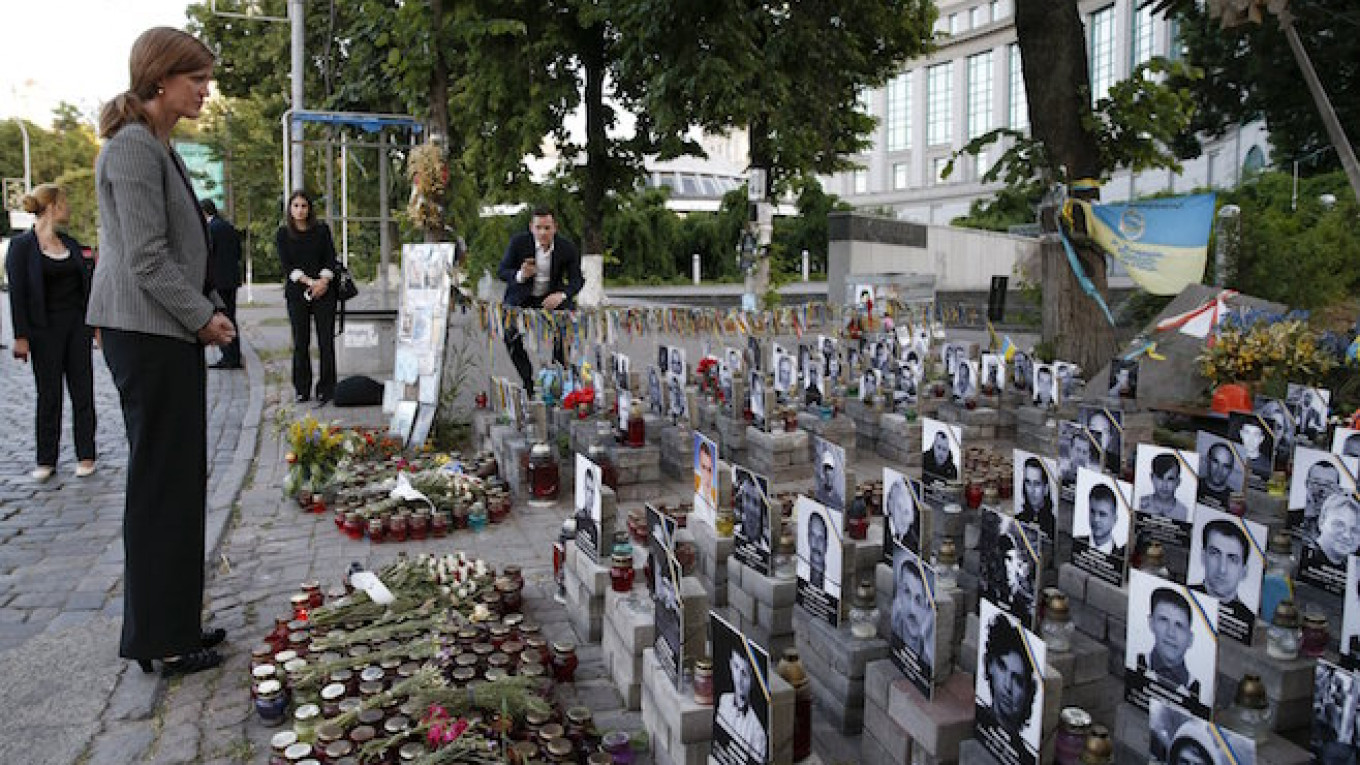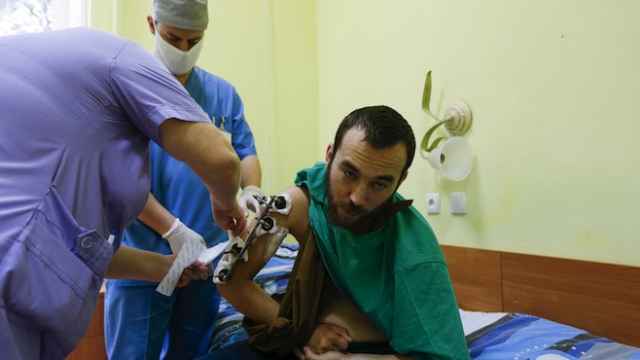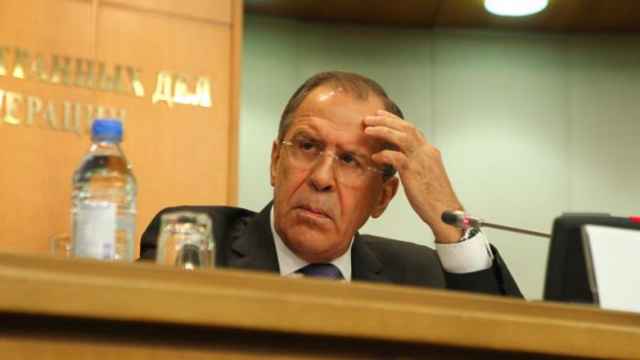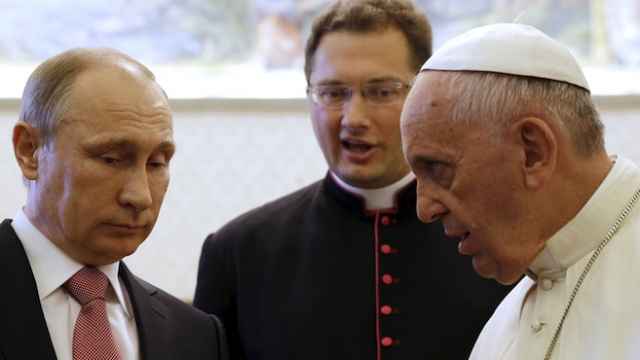Three civilians and two Ukrainian soldiers were killed in eastern Ukraine within 24 hours up to midday on Thursday, Kiev's military said, further eroding a four-month-old ceasefire in the separatist conflict.
The truce brokered by the leaders of Ukraine, Russia, Germany and France has stemmed large-scale fighting but regular skirmishes near Donetsk claim lives almost daily on both sides, and international monitors said they feared a bigger flare-up.
The two Ukrainian soldiers were killed and 13 others wounded by pro-Russian separatists using heavy weapons in violation of the February ceasefire, a military spokesman said in Kiev.
The three civilians were killed on Wednesday night in a mortar attack near Gorlivka, which is in separatist-held territory north of the regional hub of Donetsk. The military and the rebels blamed each other for the attack.
A spokesman for the Organization for Security and Cooperation in Europe, Michael Bociurkiw, said the situation had stabilized following heavy fighting on June 3 between government forces and separatists at Maryinka, 23 km west of Donetsk, that tore at the tenuous truce. But relocation of personnel and weapons in the area meant "the normal pattern of violence has reasserted itself ... the threat of a sudden flare-up still remains", Bociurkiw said.
Despite assertions to the contrary, neither side has completed the withdrawal of heavy weapons as agreed in the four-power talks last February in Minsk, Belarus, said Bociurkiw.
The Minsk truce deal is touted by all sides as the basis for reaching a peace settlement in a conflict which erupted in April, 2014, after Russia annexed Ukraine's Crimea region and which has cost more than 6,400 lives according to U.N. figures.
But the United States, its Western allies and Kiev accuse Russia of failing to implement the Minsk agreement by keeping its troops in Ukraine and arming the rebels.
Moscow, which denies direct involvement in the conflict, has taken the side of the separatists in accusing Ukrainian forces of attacking rebel positions in urban areas in violation of the Minsk agreement.
Local Elections
In line with the Minsk blueprint, President Petro Poroshenko announced Kiev would go ahead with local elections in Ukraine on Oct. 25 in a step intended to result in stronger powers being delegated to the regions.But he acknowledged that separatist resistance meant the vote could not realistically be held in rebel-held parts of the former Soviet republic.
"Unfortunately, I am not ready to name a date for voting there. But I am sure that as soon as Moscow and the (separatist) fighters stop torpedoing them we will very quickly find mutual understanding, begin a political dialogue with the legally elected representatives ...", he said in a speech in Mariupol.
The U.S. ambassador to the United Nations, Samantha Power, said on a visit to Kiev that Washington remained supportive of the Minsk agreement despite violations.
Most of these had been carried out by separatists and there had been the reappearance on the field of heavy weapons which had previously been withdrawn, Power said.
"There's a political solution, diplomatic pressure to try to ensure better implementation in the near term and full implementation ultimately and that is the necessary course even if, right now, it's a halting one."
Power said Western sanctions imposed on Russia over its role in the Ukraine crisis had had a devastating effect on the Russian economy. She said that while these had not immediately forced Russia to withdraw its forces and weapons from Ukraine, Russia would feel the effect of being isolated over time.
Moscow had denied Western accusations that it is arming the separatists in eastern Ukraine and sending its own soldiers without identifying insignia to join the fight.
A Message from The Moscow Times:
Dear readers,
We are facing unprecedented challenges. Russia's Prosecutor General's Office has designated The Moscow Times as an "undesirable" organization, criminalizing our work and putting our staff at risk of prosecution. This follows our earlier unjust labeling as a "foreign agent."
These actions are direct attempts to silence independent journalism in Russia. The authorities claim our work "discredits the decisions of the Russian leadership." We see things differently: we strive to provide accurate, unbiased reporting on Russia.
We, the journalists of The Moscow Times, refuse to be silenced. But to continue our work, we need your help.
Your support, no matter how small, makes a world of difference. If you can, please support us monthly starting from just $2. It's quick to set up, and every contribution makes a significant impact.
By supporting The Moscow Times, you're defending open, independent journalism in the face of repression. Thank you for standing with us.
Remind me later.






